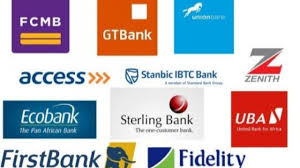Despite macroeconomic challenges and rising competition from fintechs, ten major Nigerian banks extended loans totaling N65.6 trillion to customers in 2024—a 41.2% increase from the N46.46 trillion recorded in 2023.
The banks include: Access Holdings, Zenith Bank, GTCO, UBA, Ecobank (ETI), First Holdings, FCMB Group, Wema Bank, Stanbic IBTC Holdings, and Fidelity Bank.
An analysis of their 2024 audited reports shows that sectors such as oil and gas, general commerce, manufacturing, and government lending received the highest loan allocations.
Ecobank led with N15.35 trillion in loans—up 53% from N10.03 trillion in 2023—followed by Access Holdings, which issued N11.5 trillion, marking a 42.9% increase. Zenith Bank granted N9.97 trillion, a 52% rise driven by both foreign currency revaluation and growth in naira-denominated loans.
Other banks’ 2024 lending figures include:
- First Holdings: N8.77 trillion (up 37.8%)
- UBA: N6.95 trillion (up 33%)
- GTCO: N2.79 trillion (up 12.3%)
- Fidelity Bank: N4.38 trillion
- FCMB Group: N2.36 trillion
- Wema Bank: N1.2 trillion
- Stanbic IBTC: N2.35 trillion
GTCO highlighted a well-diversified loan book and stable asset quality. It reported changes in its oil and gas exposure: upstream and midstream loans declined, while downstream and natural gas segments increased. Contributions from manufacturing (20.99%), agriculture (8.37%), and ICT and transport (6.94%) also grew.
A report by S&P Global Ratings noted that naira depreciation inflated loan values in 2023 and 2024, leading to high nominal but muted real growth. It projected a 25–30% loan growth in 2025, supported by increased refinery capacity and upcoming bank recapitalisations.
S&P added that Nigerian banks remain in a low net external debt position and largely rely on customer deposits, which form over 80% of their funding base. The loan-to-deposit ratio is expected to stay between 95% and 100%.
Meanwhile, the average prime lending rate reached 18.56% in 2024—the highest since 2010—as the Central Bank of Nigeria (CBN) hiked the Monetary Policy Rate (MPR) from 18.75% to 27.50% over the year, in efforts to fight inflation and stabilise the naira.
According to analysts, banks adjust their lending rates based on cost of funds and MPR trends, rather than using the MPR as a fixed benchmark. Some experts warned that recent CBN policies on idle deposits and FX flows could lead to prolonged high interest rate.
Edited by Nzubechukwu Eze.









